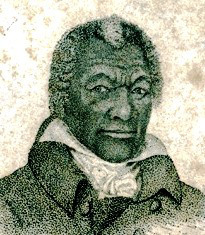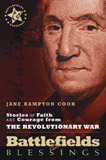Jane Hampton Cook's Blog, page 9
February 4, 2016
“The state of a king shuts him from the
“The state of a king shuts him from the world, yet the business of a king requires him to know it thoroughly,” Common Sense 1776 revolution240.htm http://ow.ly/i/ekyVo


February 2, 2016
Which of George Washington’s BFF are yo
Which of George Washington’s BFF are you? Take this quiz to find out.
http://www.buzzfeed.com/janehamptoncook/which-bff-of-george-washingtonas-are-you-258jz


January 21, 2016
What’s your American dream? A “Barnes
What’s your American dream? A “Barnes & Noble with a Starbucks” was Henry Knox’s pre-Revolutionary “American” dream in Boston. When the British seized Boston after Lexington & Concord in April 1775, Knox joined George Washington and the patriot militia in Cambridge. The Continental Army surrounded the British by land, but the British military still controlled Boston harbor. By December, Knox had slipped out of Cambridge and traveled to Fort Ticonderoga in New York with hopes of bringing Washington big guns to end the siege. #TBT #throwbackthursday revolution240.com http://ow.ly/i/ekxgY http://ow.ly/i/ekxEA


January 18, 2016
Dr. Alveda King on her uncle. What would
Dr. Alveda King on her uncle. What would MLK tweet? http://www.faithgateway.com/what-would-mlk-tweet/#.Vp0rg5orJnJ


January 14, 2016
By owning the colonial equivalent of a
By owning the colonial equivalent of a “Barnes & Noble with a Starbucks,” Henry Knox was living the “American” dream in Boston in 1775. When the British seized Boston after Lexington & Concord in April 1775, Knox made a choice. He abandoned his bookstore and livelihood, slipped out of Boston with his wife, and joined George Washington and the patriot militia in Cambridge. The Continental Army surrounded the British by land, but the British military still controlled Boston harbor. The siege and stalemate continued for 11 months. #TBT #throwbackthursday revolution240.com http://ow.ly/i/ekwQ3


January 1, 2016
Introducing my special online project of
Introducing my special online project of 2016, the 240th of 1776: http://www.janecook.com/revolution240/


December 3, 2015
Throwback Thursday. I was destined to be
Throwback Thursday. I was destined to be a Cook @janehamptoncook #ThrowbackThursday http://ow.ly/i/cDJEZ


October 19, 2015
Oct. 19–How did Yorktown Change an African-American Spy?
 Today, October 19, marks the 234th anniversary of the last day of the last major battle of the Revolutionary War, the Battle of Yorktown, Virginia.
Today, October 19, marks the 234th anniversary of the last day of the last major battle of the Revolutionary War, the Battle of Yorktown, Virginia.
Enjoy this excerpt from my book, Stories of Faith and Courage from the Revolutionary War.
One of the heroes of Yorktown was a slave.
 William Armistead of New Kent County, Virginia, gave his slave, James Armistead, permission to offer his services to the Marquis de Lafayette. Lafayette decided not to employ the slave as a servant. Instead, he turned him into a spy.
William Armistead of New Kent County, Virginia, gave his slave, James Armistead, permission to offer his services to the Marquis de Lafayette. Lafayette decided not to employ the slave as a servant. Instead, he turned him into a spy.
“Lafayette’s attempts at infiltrating British headquarters were futile until the first week of July, when Cornwallis hired James Armistead to spy on the Americans,” noted historian Robert Selig, who participated in Colonial Williamsburg’s 1997 Brothers in Arms symposium on African American soldiers in America’s wars.
It took time before Armistead discovered any worthwhile news. But he was probably the one who informed Lafayette that Cornwallis was expanding his Yorktown fortress. “The written and oral reports of the unlikely double agent kept the allies apprised of British plans. On August 25th, Lafayette could report that Cornwallis had begun ‘fortifying at
York.’”
 Armistead returned to Lafayette’s service before the siege of Yorktown began. “When Cornwallis [as a prisoner of war] paid a courtesy call on the marquis, he was surprised to encounter a black man there he considered to be in his pay,” Selig explained of the custom of opposing generals meeting each other after the battle.
Armistead returned to Lafayette’s service before the siege of Yorktown began. “When Cornwallis [as a prisoner of war] paid a courtesy call on the marquis, he was surprised to encounter a black man there he considered to be in his pay,” Selig explained of the custom of opposing generals meeting each other after the battle.
Armistead was far from the only black man to serve the Continental cause at Yorktown. About fifteen hundred African American men, one fourth of the army, fought at Yorktown for the patriots. Former African slaves also served in the English, French, and Hessian ranks.
Although it took several years, Armistead ultimately received freedom for his service. He had infiltrated the enemy camp at the peril of his life. Lafayette wrote him a certificate citing Armistead’s “Essential Service” in collecting “Intelligence from the Enemy’s Camp” and asserted he (Armistead) was therefore “Entitled to Every Reward His Situation Can Admit of.” Armistead used the document to prove to the Virginia legislature that he qualified for emancipation under a law they had passed for slaves who had fought in the Revolution on behalf of their masters.
Because of the Revolution, Armistead underwent tremendous change. He went from a slave to a freeman to a landowner. He bought forty acres of land in New Kent County, Virginia, in 1816 and raised a family. Virginia gave him a regular pension of $40 a year.
But he also made another significant change because of the Revolution. Because he was no
longer the slave of William Armistead, James Armistead changed his name to James Lafayette, in honor of the man who trusted him to spy on the enemy.
A name change is occasionally a sign of a revolutionary change. Saul became the apostle
Paul after his encounter with Christ on the road to Damascus. Abram became Abraham after receiving God’s promise to build a nation through him. It is fitting that a
name change sometimes follows life’s most significant moments.
Author Jane Hampton Cook is known for making history memorable and relevant to today’s news, current events, and modern-day life. A frequent guest on the Fox News Channel and other outlets, Jane is the author of eight books, including American Phoenix, America’s Star-Spangled Story, and Stories of Faith and Courage from the Revolutionary War. Jane is also a former White House webmaster. She lives with her husband and three sons in Fairfax, Virginia.


September 24, 2015
With my grandfather Poppa Charlie. Learn
With my grandfather Poppa Charlie. Learned a lot on ancestry.com. #TBT #Throwback Thursday http://ow.ly/i/cDFZh


September 17, 2015
Presidential historian in the making. Wh
Presidential historian in the making. While mom’s got the LBJ brochure I was slurping that Mr. Pibb! #TBT http://ow.ly/i/cDY7Y





